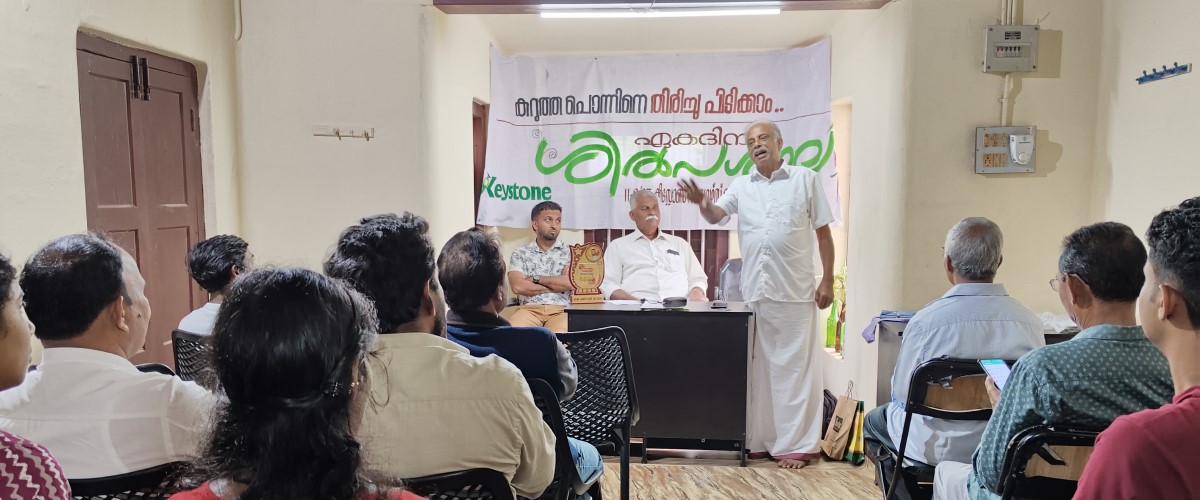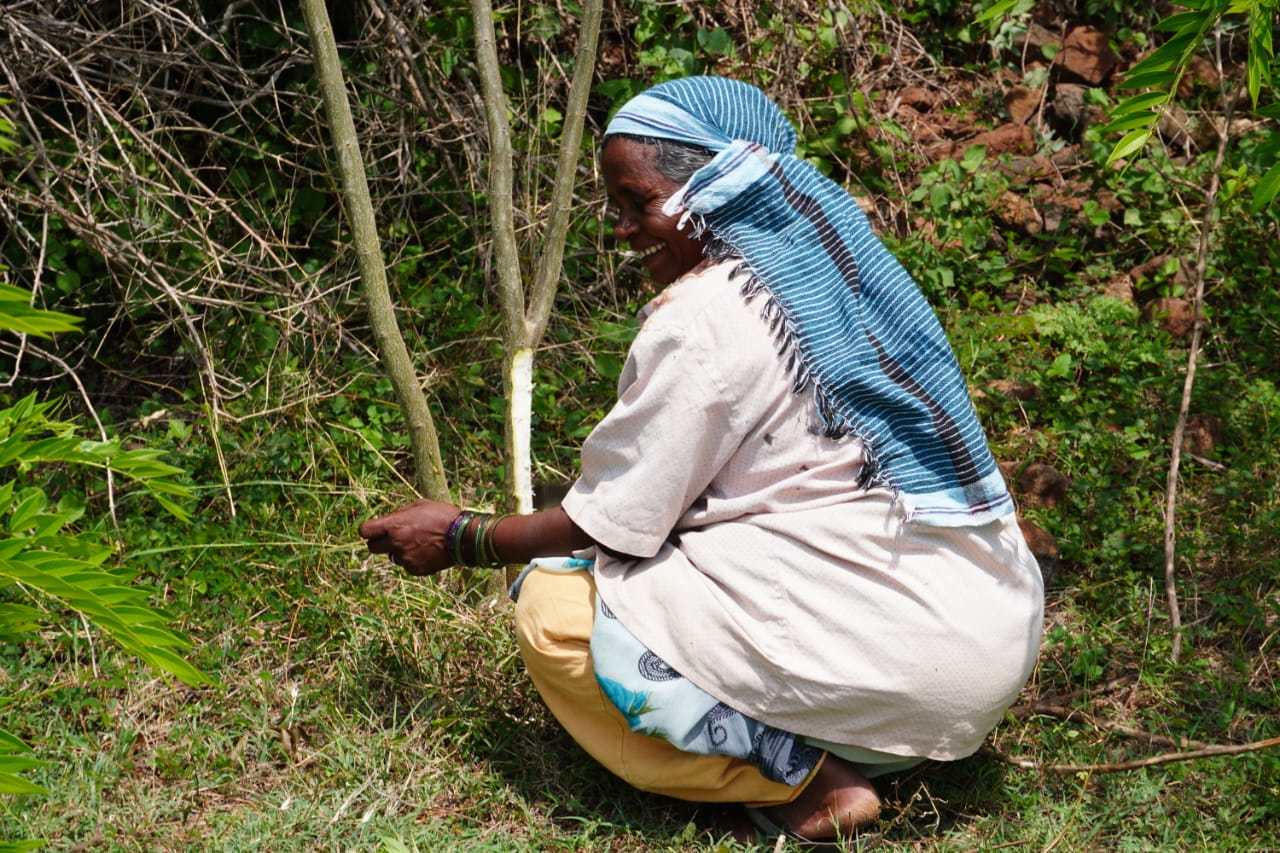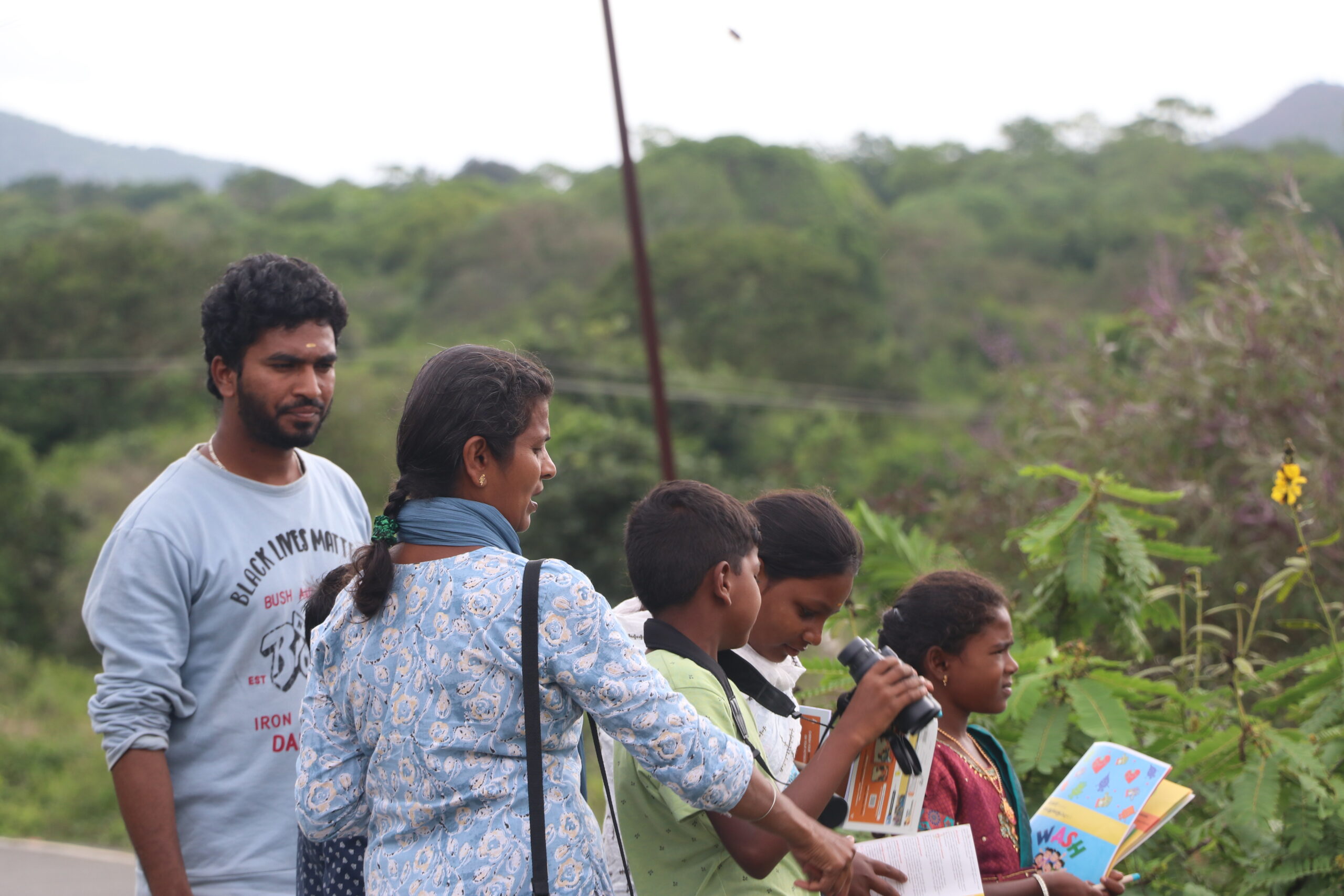September 11, 2023
By Ramachandran K.G.
Programme Coordinator, Community Wellbeing
Wayanad has been well-known for decades, for the cultivation of a diversity of spices, with pepper playing a crucial role in this reputation. In recent years, we have witnessed that pepper farming in Wayanad is facing some crucial challenges owing to extreme changes in weather patterns. There are several diseases affecting the crop, either caused by pests or other unknown reasons. Farmers here are deeply concerned about the future of pepper in the region. Under these circumstances, the Keystone team in Wayanad decided to organise a workshop with the support of Eco Friends (Nattarivu Padana Kendram), which is a group of expert organic farmers in the district, for the farmers who are engaged in the pepper farming.
The workshop was held at the Keystone Resource Centre in Mananthavady on September 11, led by Emmanuel P.J., a veteran organic and traditional farmer from Nattarivu Padana Kendram. We welcomed 26 farmers from across Wayanad district as participants. The sessions were inaugurated by Muhammad Shafeeq, agriculture officer at Thondarnadu gram panchayat, who has been awarded as best agriculture officer in Kerala in 2022-23. The inaugural session was presided over by T.C. Jose, the chairperson of Wayanad District Biodiversity Board. Balakrishnan, who was awarded as best organic farmer in Kerala in the year of 2021-22, was also present in the workshop.
The purpose of the workshop was to engage farmers in discussions on experiences in dealing with various challenges of pepper farming. Despite knowing about some common crop diseases, they are forced to use chemical pesticides recommended by the agriculture officers. We introduced organic alternatives to synthetic chemical inputs. One of the farmers shared about a new disease that he had begun observing on his farmland since last year, and was at a loss for solutions. He exhibited the collected samples of the larvae that attack pepper seeds.
The group discussed organic solutions against some of the common diseases. The use of pseudomonas, beauveria and trichoderma as pest control agents were suggested. We also explored ways of improving soil quality. The effectiveness of organic fertiliser preparation developed by the local experts has also been discussed in the workshop. Many farmers who had used these alternatives gave encouraging feedback on how the quality of soil in their farmlands improved, and claimed that there is an increase in crop productivity. We also shared precautions to be taken while selecting pepper vines before planting. The more seasoned farmers among our participants shared their insight on practices adopted in organic pepper farming.
Our participants say that they now envision a steady shift to organic farming in the near future. They have shared their findings of the newly observed crop disease to agriculture officers, and are awaiting a response. The group will continue taking efforts to share their knowledge with other farmers and recapture the cultivation of pepper in the district. Shafeeq offered his support for any initiatives that is helpful for the farmers in the long run.


















